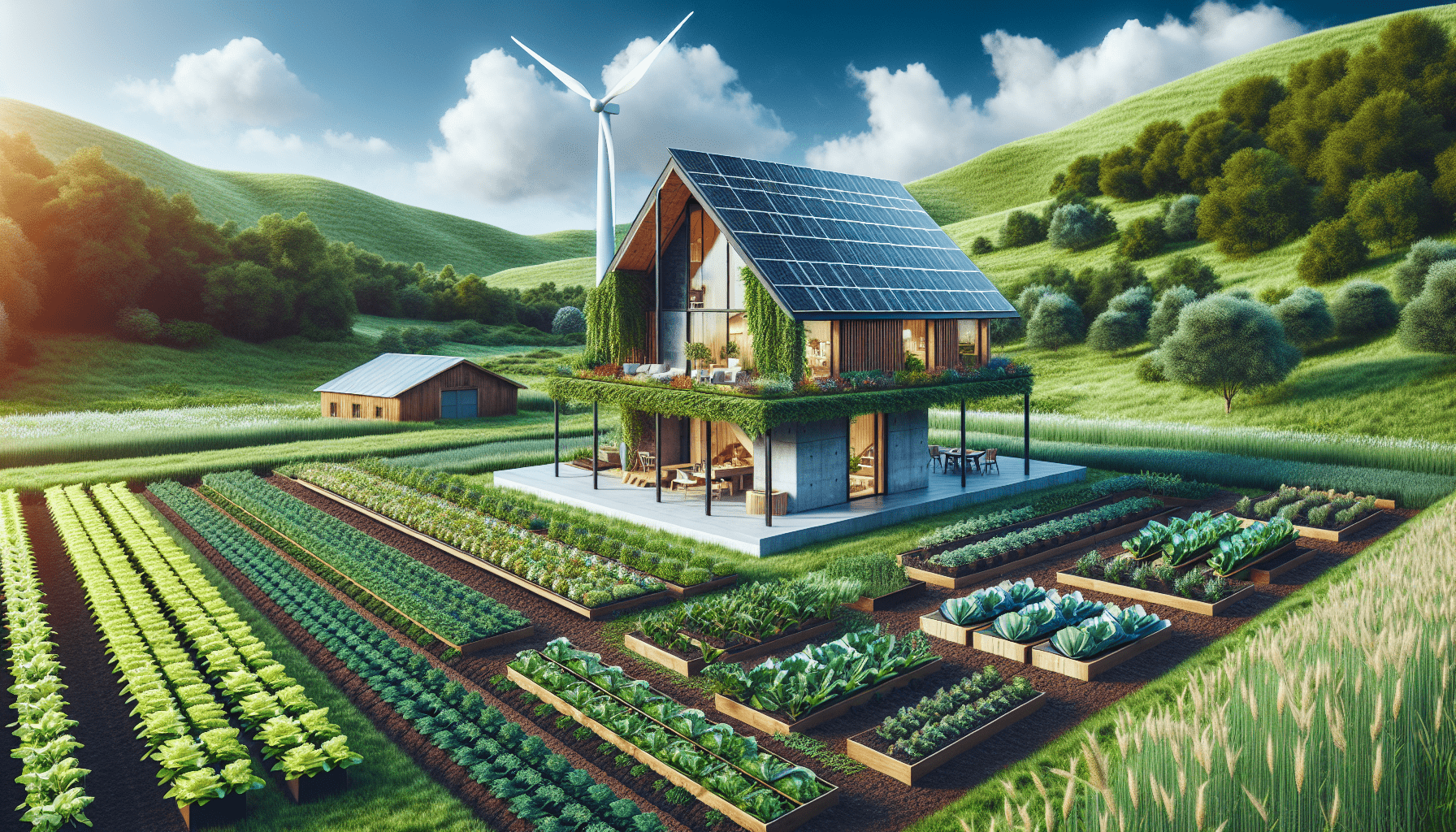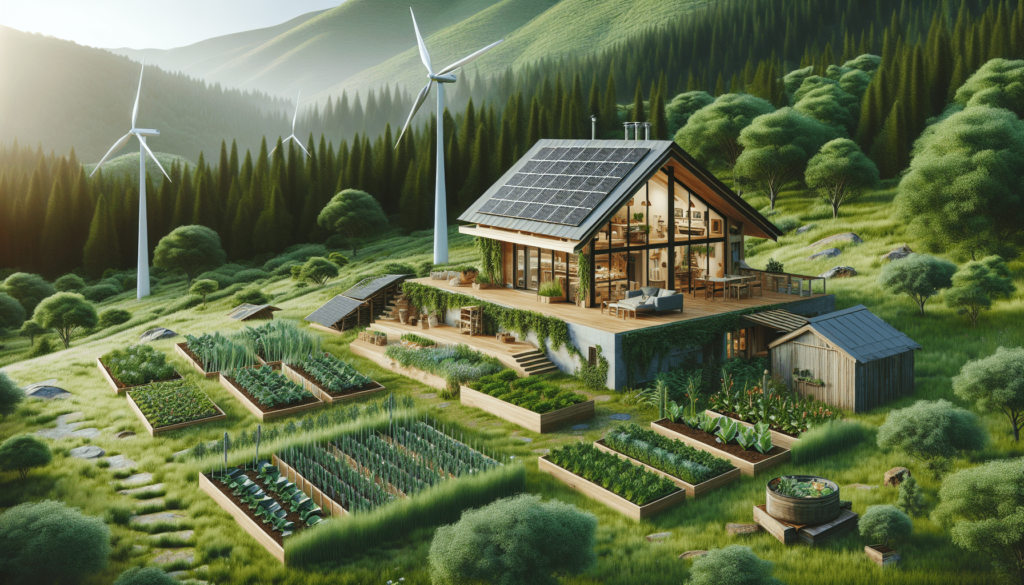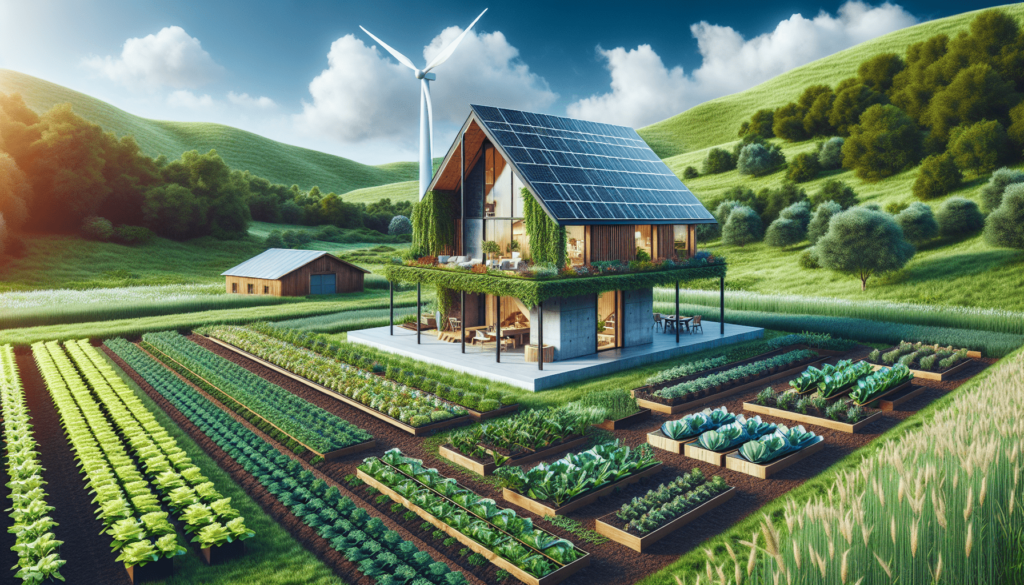
Is it expensive to go off-grid? This is a common question among those intrigued by the idea of breaking free from traditional utilities and creating a self-sustaining lifestyle. The concept of living off-grid can evoke images of serene landscapes and a life untethered from monthly utility bills. Yet, the financial implications can be complex and often deter many from pursuing this path. Let’s embark on a comprehensive exploration to determine just how costly it really is to live off-grid.

What Does Going Off-grid Mean?
Going off-grid means living independently of the public utilities, such as electricity, water, and gas services. Those who choose this lifestyle generate their own power, source their own water, and often grow their own food. While it might seem like a straightforward choice, the practicalities of achieving and maintaining this independence can be intricate.
Initial Costs of Off-grid Living
One of the first considerations is the initial investment. The expenditure can vary widely depending on the size of your property, your energy needs, and the technology you opt for.
Land Purchase
The cost of land will vary depending on location, size, and amenities. Rural areas tend to be more affordable but might come with additional challenges such as lack of direct access, infrastructure, and utilities.
| Location | Average Cost per Acre |
|---|---|
| Rural Areas | $2,000 – $5,000 |
| Suburban Areas | $10,000 – $50,000 |
| Urban Areas | $100,000 and above |
Housing Construction
Building a house to accommodate an off-grid lifestyle involves more than just erecting walls and a roof. It requires careful planning of energy-efficient designs, insulation, and durable materials.
| Housing Type | Estimated Cost |
|---|---|
| Tiny Home | $20,000 – $60,000 |
| Standard Family Home | $100,000 – $300,000 |
| Eco-friendly and Solar Homes | $200,000 and above, depending on size and technology |
Renewable Energy Systems
The heart of off-grid living lies in how you generate and manage your energy. Solar panels, wind turbines, and battery storage are the most popular choices.
| System | Initial Cost |
|---|---|
| Solar Panels (5kW System) | $10,000 – $30,000 |
| Wind Turbines | $15,000 – $75,000 |
| Battery Storage | $5,000 – $20,000 |
Ongoing Costs of Off-grid Living
After the initial investment, there are ongoing costs to consider. These include maintenance, repair, and possibly replacement of the systems you’ve installed.
Maintenance and Repair
Renewable energy systems, though sustainable, require regular upkeep to function efficiently. Failing to maintain these systems can lead to higher long-term expenses.
| System | Annual Maintenance Cost |
|---|---|
| Solar Panels | $200 – $500 |
| Wind Turbines | $300 – $800 |
| Battery Storage | $100 – $300 |
Water and Waste Systems
Managing water and waste is another crucial aspect. You would need a reliable water source, be it a well or a rainwater harvesting system, and a waste management solution such as a septic system.
| System | Cost |
|---|---|
| Well Drilling and Setup | $3,000 – $20,000 |
| Rainwater Harvesting System | $1,000 – $5,000 |
| Septic System Installation | $3,000 – $10,000 |
Financial Benefits of Going Off-grid
Though the costs can be significant upfront, there are financial benefits to reaped over time. The absence of monthly bills and potential tax incentives can make off-grid living economically viable in the long term.
Monthly Savings
Without recurring utility bills, you can save a considerable amount each month. Here’s a rough estimate of savings based on average utility costs.
| Utility | Average Monthly Cost |
|---|---|
| Electricity | $100 – $200 |
| Water | $30 – $60 |
| Gas | $30 – $50 |
Tax Incentives and Rebates
Various federal and state programs offer incentives for renewable energy installations. These can significantly offset your initial costs.
| Incentive | Eligibility |
|---|---|
| Federal Solar Tax Credit | Up to 26% of the installation cost |
| State-specific Rebates | Varies by state |
| Renewable Energy Certificates | Varies by production |

Environmental Costs and Benefits
Beyond financial considerations, off-grid living impacts the environment. It can reduce your carbon footprint, but it requires sustainable practices to be truly beneficial.
Reducing Carbon Footprint
Relying on renewable energy significantly reduces greenhouse gas emissions. Solar and wind power are clean energy sources that contribute positively to the environment.
| Energy Source | CO2 Emissions |
|---|---|
| Solar Panels | Negligible during operation |
| Wind Turbines | Negligible during operation |
| Conventional Power Plants | High emissions |
Environmental Impact of System Disposal
One must also consider the environmental impact when these systems reach their end of life. Proper disposal and recycling of components like solar panels and batteries are essential.
Social and Personal Costs of Off-grid Living
Transitioning to an off-grid lifestyle also has social and personal implications. These go beyond finances and touch on your daily living experience.
Quality of Life
Living off-grid can improve your quality of life by fostering a closer connection to nature and promoting self-sufficiency. However, it also demands a level of commitment and awareness.
| Aspect | Impact |
|---|---|
| Connection to Nature | Positive |
| Self-sufficiency | Positive |
| Convenience | Can be challenging |
Community and Social Interaction
Being off-grid often means living in more isolated or rural areas, which can impact your social life.
Making the Decision to Go Off-grid
Finally, deciding whether to go off-grid requires careful consideration of both the tangible and intangible costs and benefits. It involves assessing your financial capacity, your environmental values, and your lifestyle choices.
Financial Preparedness
Ensure you have a thorough budget plan and be prepared for both expected and unexpected costs. It’s advisable to have contingency funds in place.
Commitment and Lifestyle Adaptation
Evaluate if you and your family are ready to adapt to the lifestyle changes that come with off-grid living, such as increased maintenance responsibilities and possible social isolation.
Conclusion
So, is it expensive to go off-grid? The answer is both yes and no. The upfront costs can be substantial, but the long-term savings and environmental benefits often outweigh these initial investments. Ultimately, the decision hinges on your financial preparedness, personal values, and readiness to embrace a self-reliant lifestyle. The journey to off-grid living can be immensely rewarding, both economically and personally, if approached with informed planning and realistic expectations.
